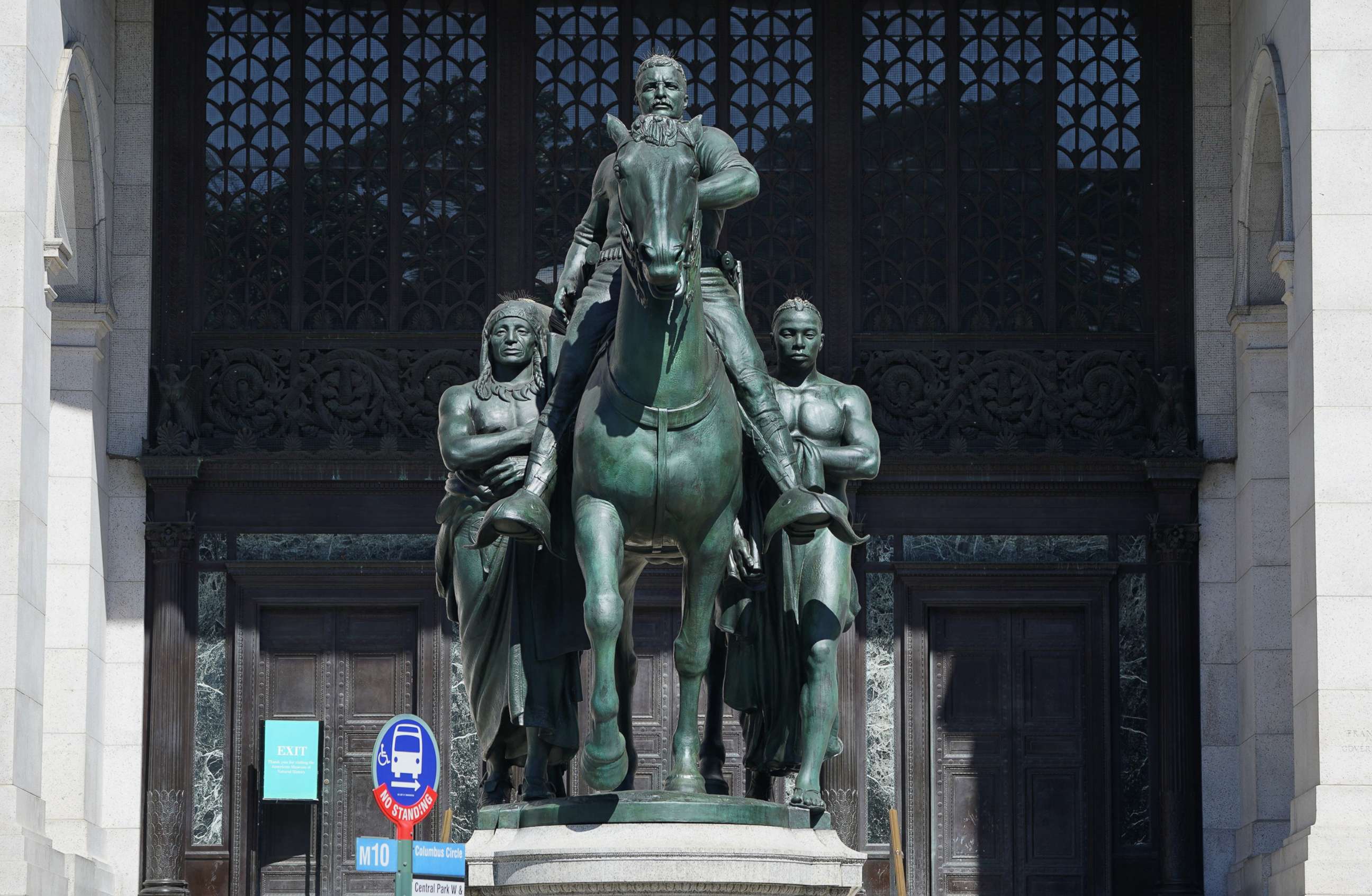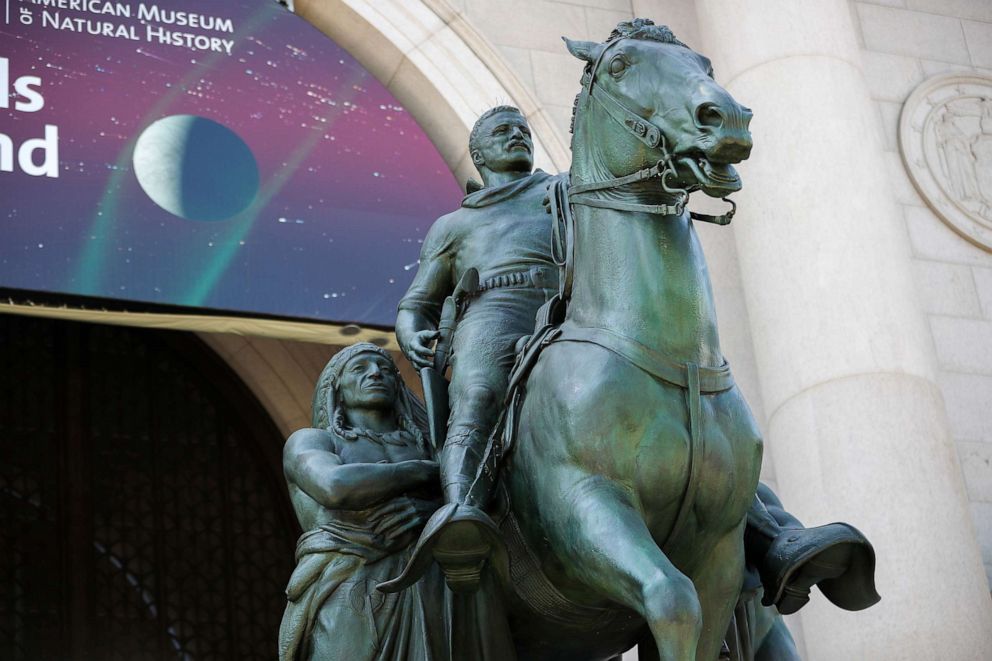'Problematic' Roosevelt statue at American Museum of Natural History finds new home
The Theodore Roosevelt Presidential Library in North Dakota agreed to take it.
A "problematic" statue of Theodore Roosevelt outside the American Museum of Natural History in New York City that has been criticized for symbolizing colonialism and racism has found a new home, more than a year after the city announced it will be removed.
The Theodore Roosevelt Presidential Library said Friday it has agreed to take the statue of the former president, which has stood on the steps of the museum since 1940, for a long-term loan.
The agreement will let the library, which is slated to open in 2026 in Medora, North Dakota, relocate the statue for storage "while considering a display that would enable it to serve as an important tool to study the nation's past," the Theodore Roosevelt Presidential Library Foundation said.

"Museums are supposed to do hard things," Edward O'Keefe, chief executive officer of Theodore Roosevelt Presidential Library Foundation, said in a statement. "It is said that 'those who do not learn from history are doomed to repeat it,' and our job is to forthrightly examine history to understand the present and make a better future."
The statue is considered "problematic" due to its composition, the library said. The piece depicts Roosevelt on horseback, while Native American and African figures walk alongside him.
The removal of the statue will be conducted by the museum, in coordination with the city, and will take several months, according to Ellen Futter, president of the American Museum of Natural History.
"We thank the Roosevelt family and the Theodore Roosevelt Presidential Library for their roles in facilitating this important work," Futter said in a statement.
The relocation is subject to final approval by the city's Public Design Commission.
"We are grateful to the Theodore Roosevelt Presidential Library for proposing a fitting new home for the Equestrian Statue," Vicki Been, New York City's deputy mayor for housing and economic development, said in a statement. "This long-term loan would allow an important part of the City's art collection to be appropriately contextualized, and we look forward to continuing to work with the Library on next steps."

Members of the Roosevelt family have voiced support for the statue's removal and relocation.
"Rather than burying a troubling work of art, we ought to learn from it," Theodore Roosevelt V said in a statement. "It is fitting that the statue is being relocated to a place where its composition can be recontextualized to facilitate difficult, complex, and inclusive discussions."
The library said it plans to establish an advisory council, made up of indigenous tribal and Black communities, historians, scholars and artists, "to guide the recontextualization of the statue."
Mayor Bill de Blasio announced in June 2020 that the museum had asked to remove the statue "because it explicitly depicts Black and Indigenous people as subjugated and racially inferior."
"The City supports the Museum's request. It is the right decision and the right time to remove this problematic statue," he said in a statement at the time.
The announcement came amid protests over the May 2020 death of George Floyd while in police custody, which brought greater attention to statues that are associated with racial injustice, from monuments of Confederate generals to the explorer Christopher Columbus.
Last month, members of the New York City Council unanimously voted to remove a statue of Thomas Jefferson from council chambers, owing to his history as a slaveholder. The statue will be given to the New York Historical Society on a 10-year loan agreement, the New York Times reported this week.
The decision has faced opposition from historians who urged the council to keep the statue at City Hall.
ABC News' Jason Volack contributed to this report.




